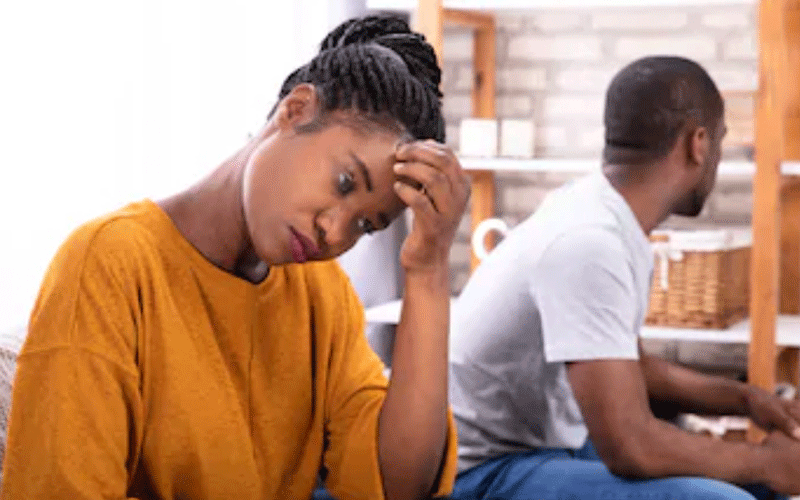Why holding grudges is bad for you

Experts argue that holding on to bitterness and vengeance when someone wrongs you does more harm to you than it does to the subject of your anger and irritation.
Nailantei Norari @artnorari
Have you met people who just never forgive no matter the number of apologies offered or even when behaviour change follows the apologies?
Have you met someone who will do one bad thing as retaliation for another bad thing that the offending party did some time back?
Those people who will miss a friend’s birthday because the person missed theirs? Or maybe you are that person.
These people are known for holding grudges. A grudge is an unresolved emotion ensuing from a scenario that caused us pain, which we did not face and, instead, chose silence for a length of time; causing us to lengthen our pain indefinitely.
Half the time, the wrongdoer is unaware of what they did wrong and are happily living their lives as the person holding the grudge suffers.
The grudge stays and the victim stays struggling with it.
We often hold grudges when we feel left out, when we envy the other person, even when we feel misunderstood.
We can also hold grudges when our unrealistic expectations of others are not met, even when we have not communicated the expectations with the person in question.
When other people impose their expectations of us on us, we can also hold a grudge against them as it might feel unfair.
“We hold grudges for several reasons. Grudges come with an identity. With our grudge intact, we know who we are—a person who was ‘wronged.’
As much as we don’t like it, there also exists a kind of rightness and strength in this identity. We have something that defines us—our anger and victimhood—which gives us a sense of purpose.
We have definition and a grievance that carries weight,” Elmard Rigan a leading counselling psychologist in Nairobi explains.
Dealing with grudges
Grudges tend to grow into resentment and bitterness, at the point they sabotage relationships easily turning a healthy relationship into a toxic one. In a relationship, holding a grudge will always lead to fighting or stonewalling.
Little things will result in explosive reactions, the other person may feel rejected, suffer insults and disrespectful actions that can lead to either a revelation of the grudge or ultimate death of a relationship.
“Holding a grudge makes the individual always recollect what was done to them and this can lead to physical reactions such as the production of stress hormones that can cause the body heightened levels of tension.
This negatively affects one’s health and can lead to deteriorating interactions with others and may even result in displacement where other easier targets are attacked for offences that someone else did.
Displacement often happens when the easier target is somehow linked to the wrongdoer.
Grudges can also lead to depression when one cannot let go and ruminates obsessively on the happenings, perceived or otherwise, that made them feel wronged,” Fiona Atieno, a psychologist and social expert explains.
It is clear that holding a grudge hurts the person holding it more than it does the person who did the real or perceived wrong.
Therefore, it is important that one finds a way to resolve the grudge in order to live life more freely and without the added burden of carrying previous hurts.
But the first step is being self-aware enough to know that you are carrying a grudge.
If you find yourself being reactionary around certain people, or viewing even positive things that certain people do for you as negative, you are probably holding a grudge against them.
“If you find you harbour bitterness or resentment towards someone, work backwards and trace the event that led to you forming the grudge.
Recognise the need for forgiveness and how it can enhance your life and work towards that.
Move away from your function as the victim and release the control and power the offending person and situation have had in your life.
If you find this difficult, consider becoming a member of a support group or see a counsellor/therapist,” Elmard advises.
Future hurts
He continues to emphasise the need to acknowledge your feelings, hurt or otherwise. It is important not to downplay your hurt as the hurt shows that some boundaries were crossed.
Resolve the hurt either by yourself or by communicating to the other party. Remember that you do not have to involve the other party to heal or to completely forgive.
Be ready to work hard at this, factoring in for the fact that healing takes time, hurts and is not a singular event.
Find a new identity where the hurt does not define you. Fiona concurs.
“Whilst it is important to let go of any grudges that you may have been holding, it is equally important to keep the lessons you learnt about yourself and the other party.
If you learnt for instance, that someone is malicious and out to get you, forgiving them does not mean you expose yourself to future hurt and attacks.
Forgive while ensuring you protect yourself from future hurts,” Fiona concludes.












